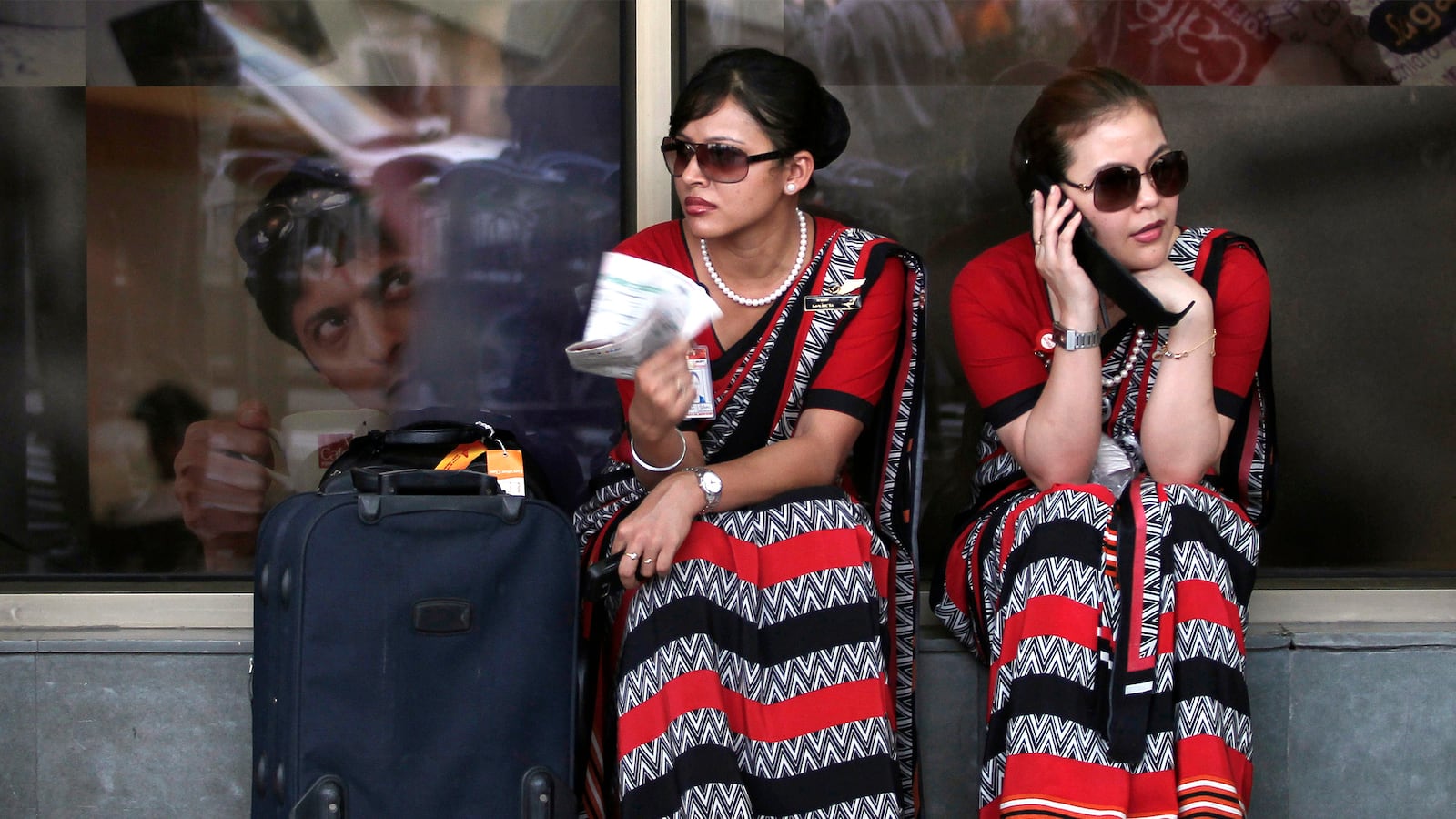Despite multiple court battles over the issue, Air India continues to demote members of its cabin crew for being overweight.
On Monday, an Air India official told the BBC that 125 in-flight employees would be grounded unless they shed some serious pounds.
The punishment comes after India’s national carrier issued a memo to 600 employees last year, telling crew members that failure to lose weight meant they would be forced to take airport jobs rather than the in-air positions that are higher-paying and more desirable. Now, it has reportedly identified those who failed to do so, and is readying them for a move out of the airplane.
(Air India confirmed the existence of the memo to the BBC, but declined to comment further on the issue.)
For decades, Air India has required its crew to adhere to what it says is a “scientific” calculation of weight against their age, height and gender. The measurement, it said, was made in accordance to aviation guidelines that recommend a Body Mass Index range of 18-25 for men and 18-22 for women.
In 2013, the airline began running medical examinations of its crew in which it deemed that one in four flight attendants were overweight. It then gave the out-of-shape three months to slim down. “We had two things in mind when we started this exercise: weight and general fitness. Though cabin crew treated it as punitive action, we think it has been a blessing in disguise for many,” an official told India’s Economic Times. “Those who are not able to get back into shape in the prescribed time will be grounded. They will be given ground jobs and not allowed to fly.”
Air India’s practice of dispensing with employees it deems unhealthy stretches back many years.
In 2001, the airline fired a woman named Nipa Dhar, saying she was 23 pounds too heavy to be a stewardess. Air India argued that the height-to-weight ration she was required to comply with had been clearly outlined in her employment contract. Three years later, after she sued, the court sided with the carrier—then called Indian Airlines—in the legality of her dismissal. Though the country has anti-discrimination laws on the books, none specifically protect against weight discrimination.
Another high-profile suit followed not long after. In 2006, the airline issued an order to all 1,600 cabin crew members to slim down. When a group of stewardesses challenged the verdict, the court validated Air India’s right to determine weight guidelines in a 2008 decision.
Six months later, in 2009, the airline fired nine of the female attendants who had been deemed overweight and had failed to shed pounds when ordered to. Air India claimed it had given them three years of time on the ground to get fit and when they failed to do so, they were terminated.
Meanwhile, Dhar continued her fight, and in 2010 the 44-year-old was finally vindicated by a court ruling that required the airline to give her nine years of back salary and rehire her for the job.
In April 2014, the courts forced Air India to put three fired stewardesses back in the skies after they had been fired for being overweight. Though the lawyers argued that “pleasing appearance, manners and physical fitness was required” in the industry, the judge deemed those reasons to have “no link with the conclusion reached.”






